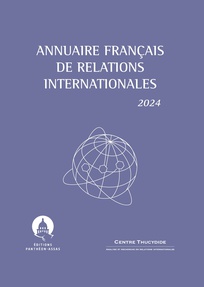Chinese Outward Foreign Direct Investment in Developed and Developing Countries: Converging Characteristics?
Christian Milelli et Alice Sindzingre
EconomiX, Working paper 2013-34
Télécharger à http://economix.fr/docs/35/SindzingreMilelli-ChinaFDI-WP_EcoX_2013-34.pdf 
Abstract
The spectacular surge in Chinese outward foreign direct investment (OFDI) has been reinforced y China's accession to the WTO (2001). The understanding of their determinants remains a ey theoretical question, in particular whether they confirm the standard conceptual framework ‘ownership', ‘location', ‘internalisation' (OLI) and ‘linkages' (augmenting competences by earning). The paper argues that the determinants of Chinese OFDI change over time and onverge toward global strategies, via a comparison between Chinese OFDI in developedcountries (based on an original database of 1800 investment operations in Europe from 2002 nwards) and in developing countries (Sub-Saharan Africa, Latin America). While their impacts ndeed vary according to countries' contexts, Chinese OFDI in developed and developing countries converges toward complex and similar motives, become more mature through the ombination of various modes of entry (greenfield and mergers-and-acquisitions), and exhibit ore commonalities than differences. The comparison thus demonstrates that while the determinants of Chinese OFDI in developed countries were initially access to their markets, hey now include efficiency-seeking motives (dispersing design, R&D and production) and ssets-seeking (or augmenting assets) motives, the latter's prevalence in developed countries e.g., patents, skills, brands) remaining a contrast with developing countries. Chinese OFDI in eveloping countries is mostly driven by resource-seeking motives (strategic inputs for China's rowth), but also in resource-endowed developed countries (Australia, Canada). Large nvestments are driven by Chinese state-backed firms both in developed and developing ountries. The growing number of Chinese small and medium private enterprises which invest n developing countries (e.g., Sub-Saharan Africa) shows that market access has increasingly ecome a determinant of OFDI, together with efficiency - and assets-seeking motives - rising abour costs in China being incentives for relocating abroad, in particular in labour-intensive ectors where competitiveness is driven by prices. Chinese firms often conduct these various trategies simultaneously
![]()












